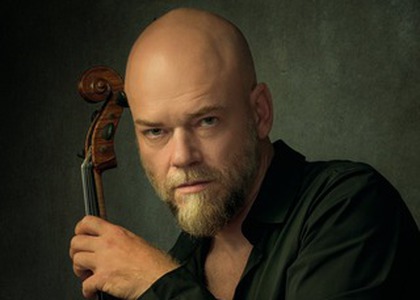> Interviews

Interview with violist Traian Boal„, member of the Arcadia Quartet
Each of the four volumes of the Quartet Integral by Mieczys≥aw Weinberg released so far has been nominated for the International Classical Music Awards and has generally received international acclaim. What does this mean for the Arcadia Quartet?
It is a great honour for us to see that things are consistently happening this way, with every volume we release being nominated each year. This brings us immense joy and motivates us-it inspires us to keep up the good work. What also pleases us greatly is the fact that, since we appreciate Weinberg's music so much, we are grateful that the success of our recordings contributes to restoring his image.
Although I understand that the idea of recording the Quartet Integral belongs to the Chandos record label, could we speak of the Arcadia Quartet's particular interest in this composer's music?
Yes, definitely! Indeed, the idea belongs to the director of the Chandos label, and initially, when we received this proposal, we did not know much about this composer. But as we started to read his works, we discovered music far beyond our expectations, and we began to seriously wonder how such music is not performed all the time; it is neitherpresent on major stages nor taught in schools, in music history classes, etc. We clearly saw that Weinberg is a composer who deserves to be placed alongside all the great composers in the history of music.
Mieczys≥aw Weinberg once wrote in a letter that "a composer is someone who knows how to bring something to a personal, inimitable light, something that exists inside each of us." How would you comment on this?
I completely agree. Moreover, this is an idea I have had since I was a student, a theory I had observed. I have always argued that the genius of a composer, or that of a creator in general, lies in their ability to dig deep enough within themselves to reach the areas where we are all the same. And from there, they extract and express their feelings and perspectives to the rest of humanity. But, in doing this, their feelings and perspectives become intelligible to everyone.
It has been said that Weinberg's musical language blends traditional and contemporary elements, incorporating ethnic influences into a unique style. What is your perspective on this?
Like any other composer, Weinberg used various means of expression. We can recognize influences from Shostakovich in Weinberg's music, although, if you allow me a small digression, we begin to wonder who influenced whom. Given their very close relationship, it is quite possible that Shostakovich was also inspired by Weinberg, not only the other way round.
And indeed, we can also find, first of all, traditional Jewish influences, but also other ethnic influences. But what particularly draws my attention in Weinberg's music is the way he constructs melodies and themes. He has such a unique way of building and presenting them that I would simply find myself humming or whistling his works. They would haunt my mind obsessively whenever I played Weinberg for a long period. And I truly appreciated this about him-the ability to write musical pieces that people can hum, to give that sense of accomplishment in doing so.
Could you tell us a bit about the Arcadia Quartet's process before recording a volume of Weinberg's Quartets?
Well, we already have some experience in approaching his music, but when we start working on a piece, the first thing we do is read it together in tempo-regardless of any slight misalignments or issues that may arise. We try to understand it and have this initial contact with the work as close to what the composer intendedas possible, because from that largerimage, we can later build all the details and elements that we study. Having a clear vision of the work from the very beginning helps us maintain contact with its overall structure. There is a risk, though... if you read a piece and dive straight into the details, working through every little aspect right away, you might end up missing the bigger pictureand start describing elements that might not necessarily connect with each other. His music is difficult to perform and hard to master.
When will the next volume be released?
The next volume is also going to be the last one. We are happy to announce that,next year, our project will come to an end, after six years of work. So, the sixth disc will be recorded next spring, and then the full collection will most likely be released the following year.
What might be interesting to add is that we will have a series of three concerts as part of the Enescu Festival next autumn, featuring nine of Weinberg's quartets-three for each concert. We are very excited and thrilled about this opportunity!
Translated by Mara Scoroșanu,
University of Bucharest, Faculty of Foreign Languages and Literatures, MTTLC, year I,
Corrected by Silvia Petrescu














